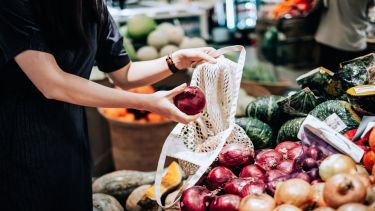The EU’s Farm-to-Fork strategy needs to be reframed to avoid an unjustified focus on food as simply a commodity, according to a group of top European experts whose independent science advice was used to inform the strategy last year.
In an article published in Nature Food today (11 March) a team of experts chaired by Professor Peter Jackson, co-director of the Institute for Sustainable Food at the University of Sheffield write:
“The European Commission’s Farm to Fork strategy seeks to facilitate a transition towards a sustainable food system. Though acknowledging food systems’ complex interdependencies, the strategy still addresses food as a commodity instead of a human right or common good – and illustrates how different framings of food may shape the development of food policy.
“Though intended to shape the Commission’s new ‘Farm to Fork’ (F2F) strategy, the Chief Scientific Advisors’ recommendations have been followed only partially, and the strategy remains largely caught up in a ‘food as commodity’ narrative.”
The article goes on to criticise the strategy for failing to engage sufficiently with this aspect of the evidence, demonstrating how the way the issue is framed (for instance, food as a human right or food as commons) results in very different policy outcomes.
The authors of this article are the same group of experts who co-wrote an Evidence Review Report last year for SAPEA, part of the European Commission’s Scientific Advice Mechanism. Their report, A sustainable food system for the European Union, analysed the latest scientific evidence on the transition to a sustainable food system, and informed policy recommendations made by the Group of Chief Scientific Advisors to the College of European Commissioners.
The SAPEA working group was chaired by Professor Peter Jackson, co-director of the Institute for Sustainable Food at the University of Sheffield. Professor Jackson is the lead author of the Nature Food article, along with Dr Marta Guadalupe Rivera-Ferre at the University of Catalonia.
Legal information
SAPEA has received funding from the European Union’s Horizon 2020 research and innovation programme under grant agreement 737432. The information and opinions on this document are those of the authors and do not necessarily reflect the opinion of the European Commission.
Media contact: Toby Wardman, SAPEA head of communications, toby.wardman@sapea.info, +32 483699625



